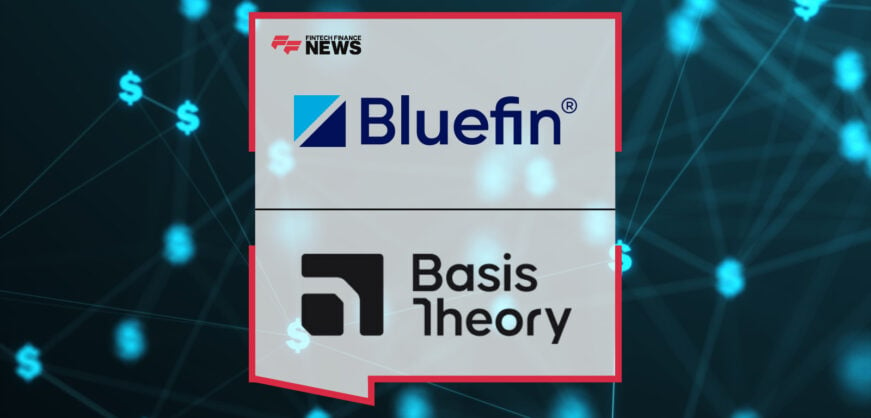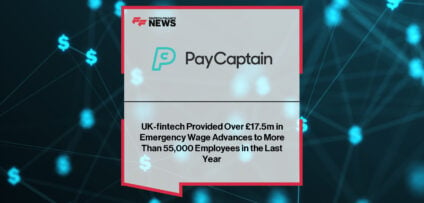Breaking News

EXCLUSIVE: “Taking the Pain Out of Compliance” – Camillo Werdich, Sinpex in ‘The Fintech Magazine’
As the EU’s new AML package of reforms approaches, Sinpex is helping cure the headache that is KYB onboarding
When a leading German healthcare billing and software company requested KYB information from thousands of client pharmacies in the run-up to Christmas 2022, there was dismay among business owners. In order to comply with Germany’s Anti-Money Laundering Act, pharmacies would have to resubmit personal and business details, and declare if they were acting as a beneficial owner in their own name or if they were a politically exposed person.
Many of them had been using the company’s billing services for years, but if they didn’t respond in a matter of a few short, festive-filled weeks, they risked having their accounts suspended. As a financial entity, the company was legally required to gather the information in a tight timeframe, but the episode demonstrated how the end customer’s experience of KYB and AML compliance can negatively rebound on a provider. With the clock ticking on full implementation in 2027 of Europe’s new, far-reaching package of AML measures, many others will be wondering how to avoid a similar scenario.
The enterprise, which is well known for its forward-thinking approach to technology adoption, went on to partner with German regtech Sinpex on a re-KYB project to make the whole process easier and more timely for everyone concerned.
“We are an API-first architecture, so we easily integrate into any existing tools, like a core banking system or a CRM,” says Sinpex Founder and CEO Camillo Werdich. “We can adjust our standard product very easily to meet client-specific needs – adapt to their rules, their thresholds, or their processes, within our platform.”
Sinpex began building its AI capability five years ago, training it to extract targeted information from documents in real time, in multiple languages.
“We acquire documents from official primary data sources in every country and give the technical capabilities to our customers through an API so they can consume whatever they need,” explains Werdich. “By doing so, we are able to automate 80 per cent of the checks they need to run.
“We’re connected to services like politically exposed persons sanctions lists, negative news data providers and identity verification providers, to build a full KYB profile. But our proprietary capabilities, like the ultimate beneficial owner analysis, are key to this exercise.”
Ready for regulation
Focussed principally on KYB compliance, Sinpex was born from Werdich’s experience of working on large-scale bank KYC remediation projects for Deloitte. Having built his own algorithm to automate 60 per cent of the document handling he was required to do – and consistently reaching the top of his team’s leaderboard – he left the firm to develop the concept further. Now, his former employer is one of Sinpex’s key partners – and it’s rewriting the rulebook to help ensure Sinpex users, wherever they are operating, comply with the latest local regulatory framework. And this summer, the two companies commissioned a joint pan-European survey to assess how well-prepared compliance teams are for the EU AML package of reforms coming down the track.
This includes operational challenges and concerns, and the likely human and financial investment needed to meet the obligations by 2027. Werdich describes today’s compliance environment in Europe as a ‘very intense time’. The new measures, which include a sixth AML directive, as well as a new AML Regulation and the establishment of an AML Authority to oversee and enforce the rules, is the first attempt to harmonise a fragmented compliance system that has failed to keep pace with financial crime.
The package brings risk-based supervision, enforcement and data-driven compliance together with stricter measures – such as requiring firms to verify UBOs independently, rather than relying on national registers – and enhanced transparency. The transition is driving momentum for faster, more accurate and auditable compliance processes, says Werdich. And that demand no doubt played into an over-subscribed seed round last year for Sinpex, jointly led by Ace Ventures and TX Ventures, which raised €4million for the Munich-based startup.
“You can easily get into a situation of over-compliance where you just do too much and lose business”
It was the beginning of whirlwind 18 months during which Sinpex extended contracts and onboarded a clutch of major clients, including Raisin Bank, which selected Sinpex to solve the specific challenge of identifying UBOs as it scales its banking-as-a-service offer. The regtech also cemented partnerships with new third-party solutions providers, such as the identity verification specialist Fourthline. And in June, it won the Startup Product Pitch at Money20/20 Europe, exposing it to a vast audience of potential financial services clients. Werdich says that has led to ‘a lot of interesting conversations’ with companies where tension is growing between meeting regulatory targets and keeping genuine customers happy.
“How do you balance that tightrope of being super-secure, making sure you’re not breaking any regulations – ultimately ensuring money is being used for what people say it’s being used for – while also meeting the demand for simplicity and speed of onboarding?” says Werdich.
Speaking from his own experience, he’s sympathetic to the pressures that’s putting on compliance teams, too.
“Taking clear steps in order to be ready for an audit later on is very time-consuming. Checking documents is error-prone and expensive if you handle these things manually, and a lot of companies struggle with very fragmented data and inconsistent processes,” he says. “It’s boring and repetitive and not fun for anyone. More importantly, it doesn’t scale.
“For customers who operate across different jurisdictions, it becomes very complex and you can easily get into a situation of over-compliance where you just do too much and lose business,” he says, adding that the onboarding process can take weeks, if not months. “Basically, compliance becomes a bottleneck for further growth.”
Which is why, he believes, firms that get it right enjoy a strategic advantage, reducing time to revenue by making compliance a built-in process that’s ‘seamless for both sides – the customer and the provider’. Having rolled out to clients in Germany, France and the Netherlands, Sinpex is now looking to expand into the US and the Nordic countries – some of its seed investment was the first to be made by Ace Venture’s new Swiss Tech Outliers fund.
“We are also looking into more vertical-specific features,” says Werdich. “For segments like banks or factoring companies, we will certainly enhance our feature capabilities.”
The team is also developing an AI co-pilot program for analysts.
“We cannot automate everything, and we cannot take the ultimate decision for a customer,” says Werdich, “but we are able to give time back to the analysts to really focus on the edge cases where they need to make a judgment.
This article was published in The Fintech Magazine Issue #36, Page 26-27
People In This Post
Companies In This Post
- Bluefin and Basis Theory Partner to Enable Unified Tokenization Across Digital and In-Person Payments Read more
- Invest Bank and AUTON8 Build Partnership to Drive Digital Resilience and Banking Agility Read more
- ING’s AI Roadmap: Platform, People, and Agentic AI Read more
- UK-fintech Provided Over £17.5m in Emergency Wage Advances to More Than 55,000 Employees in the Last Year Read more
- TreviPay Announces AI-Powered Growth Center to Help Enterprises Predict Buyer Behavior and Drive B2B Sales Read more


















